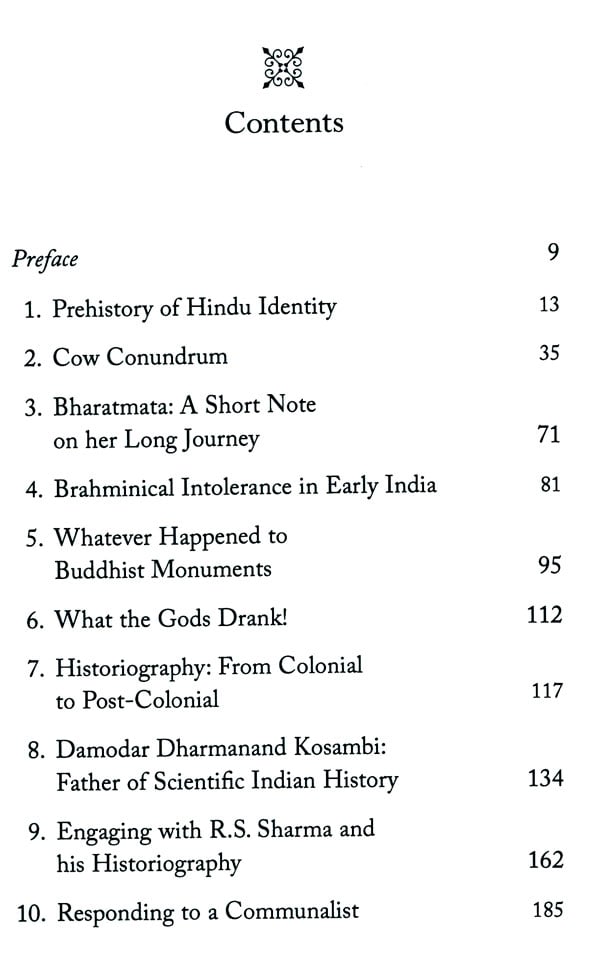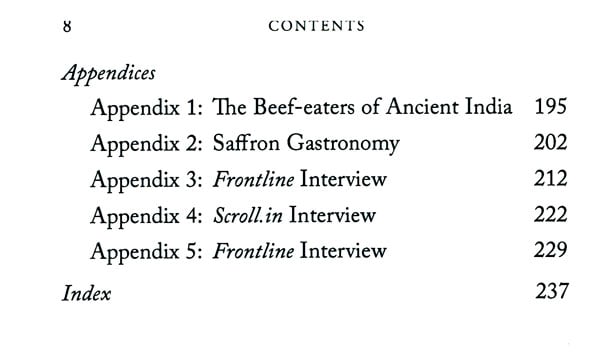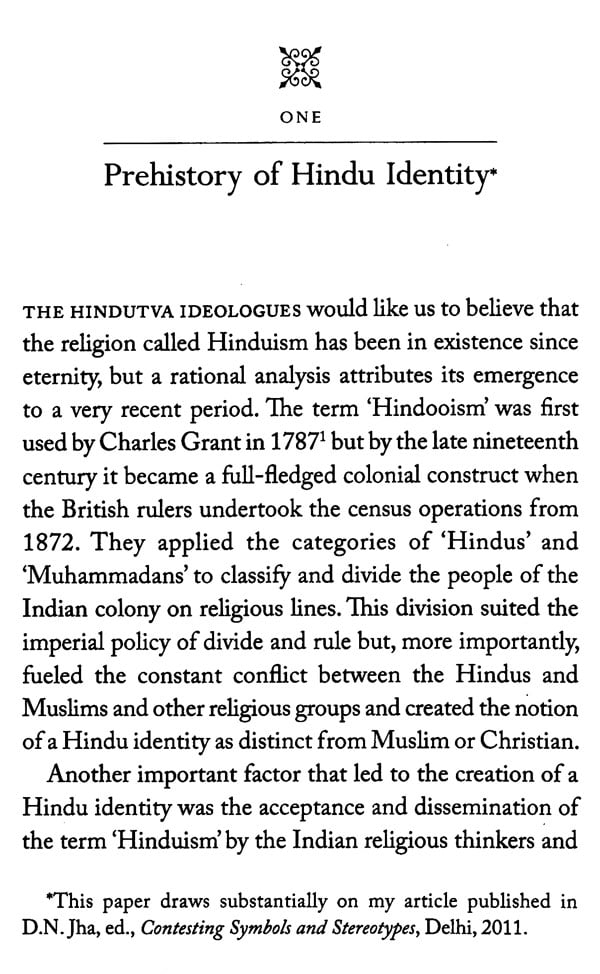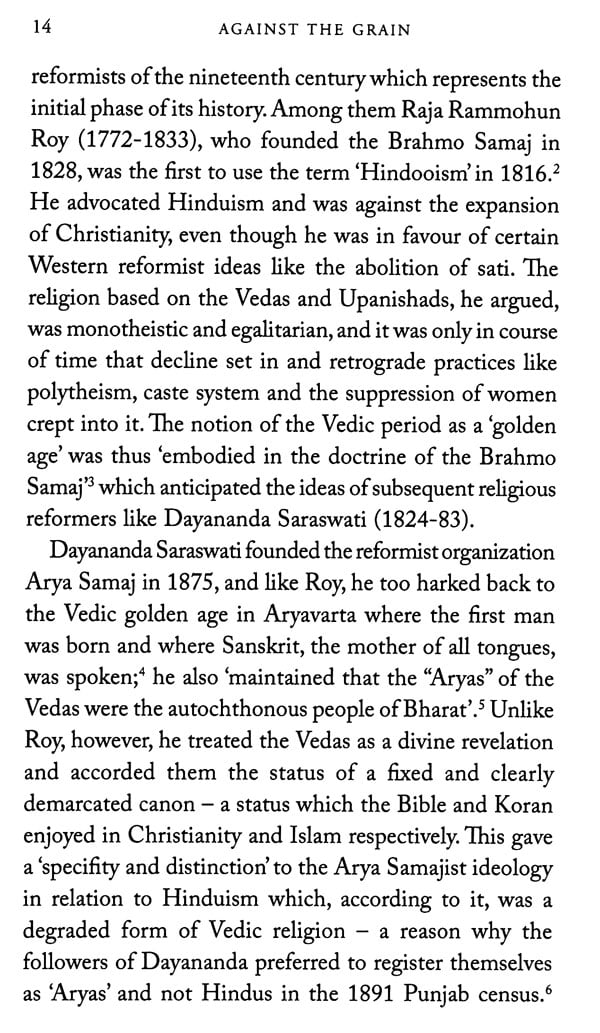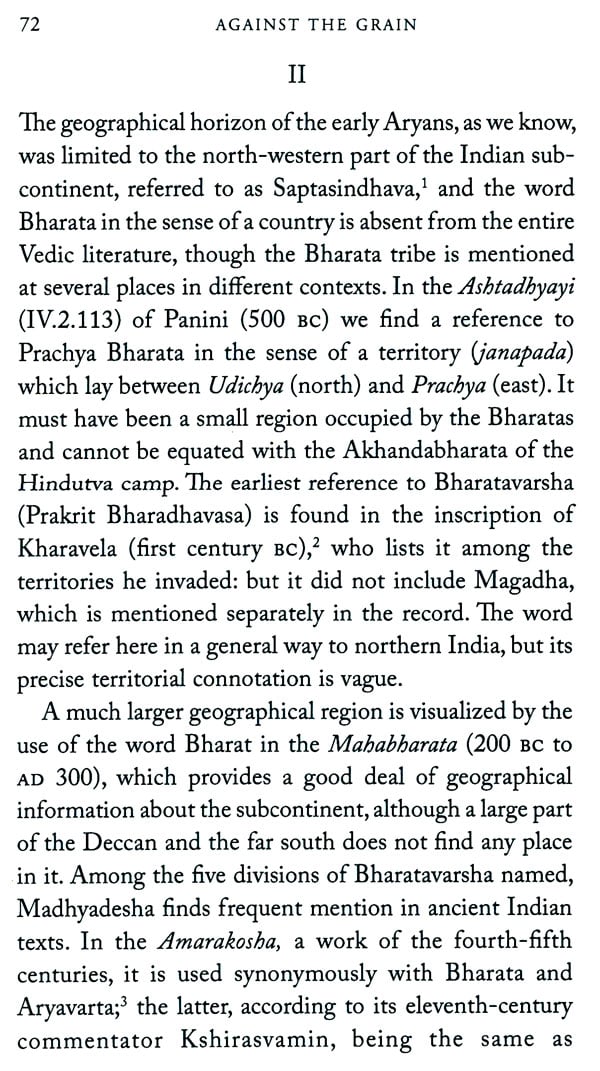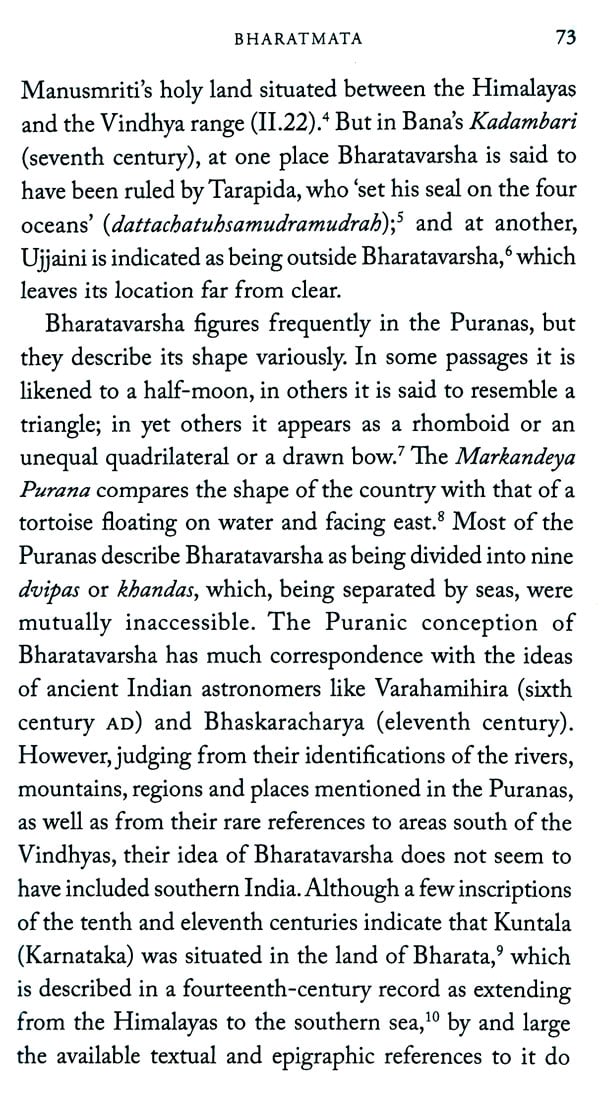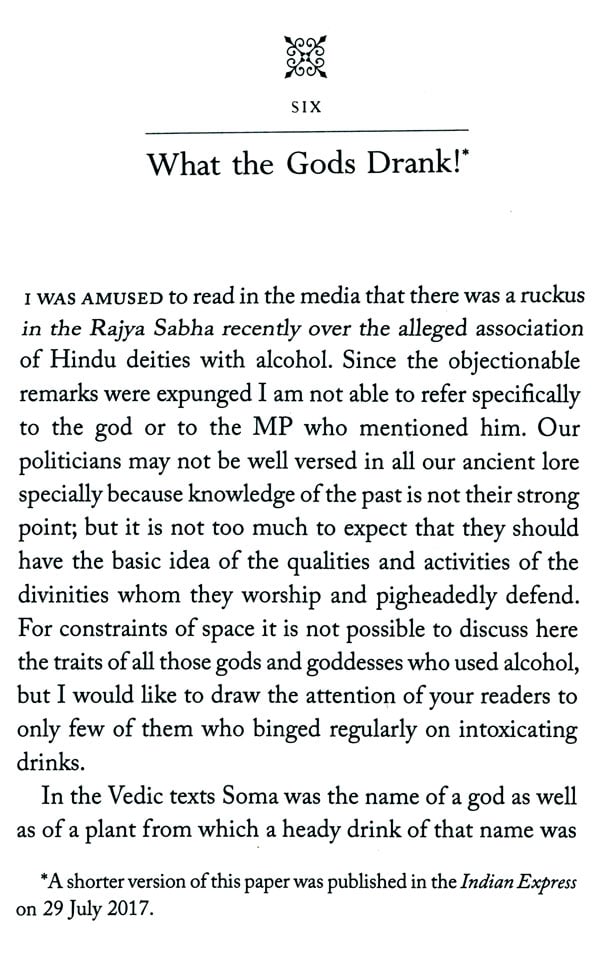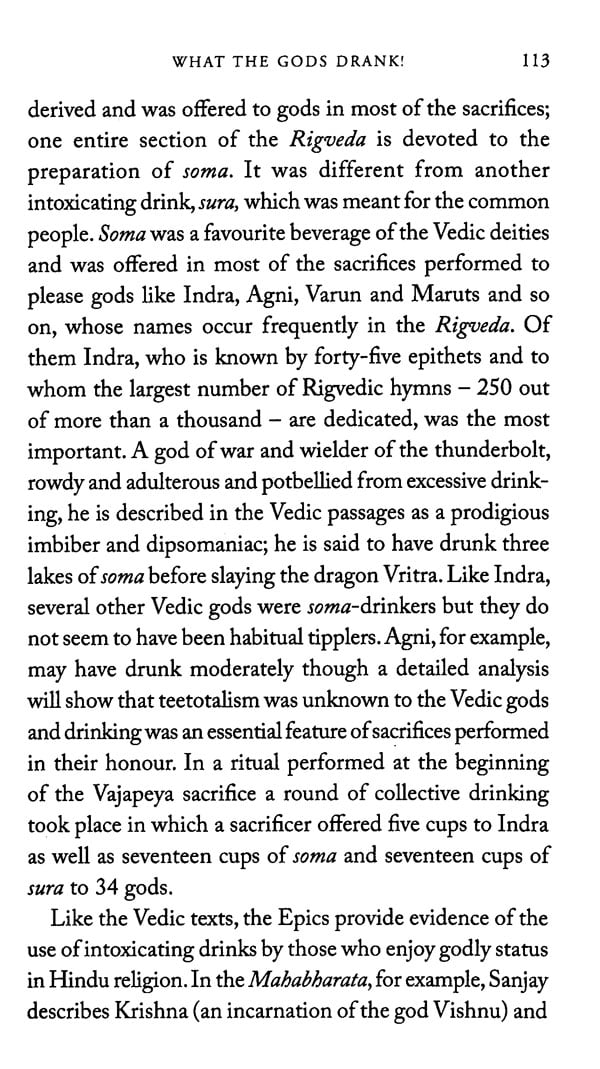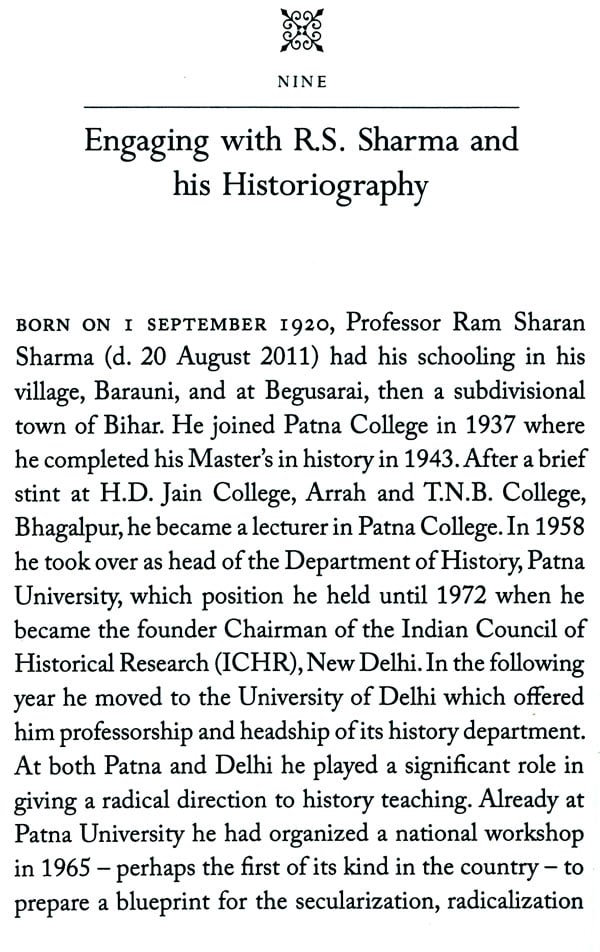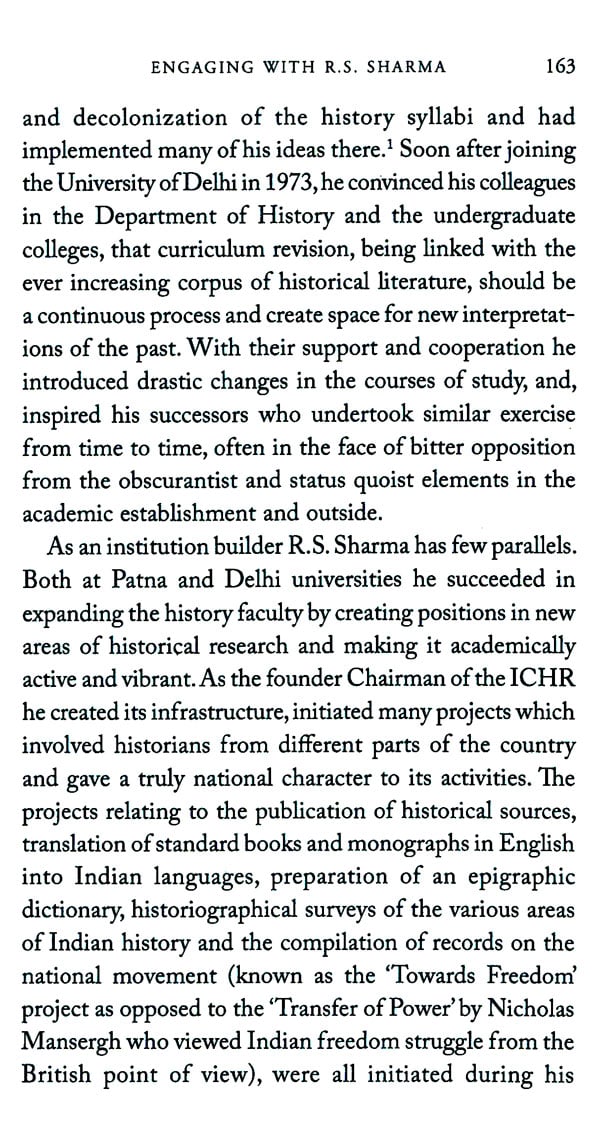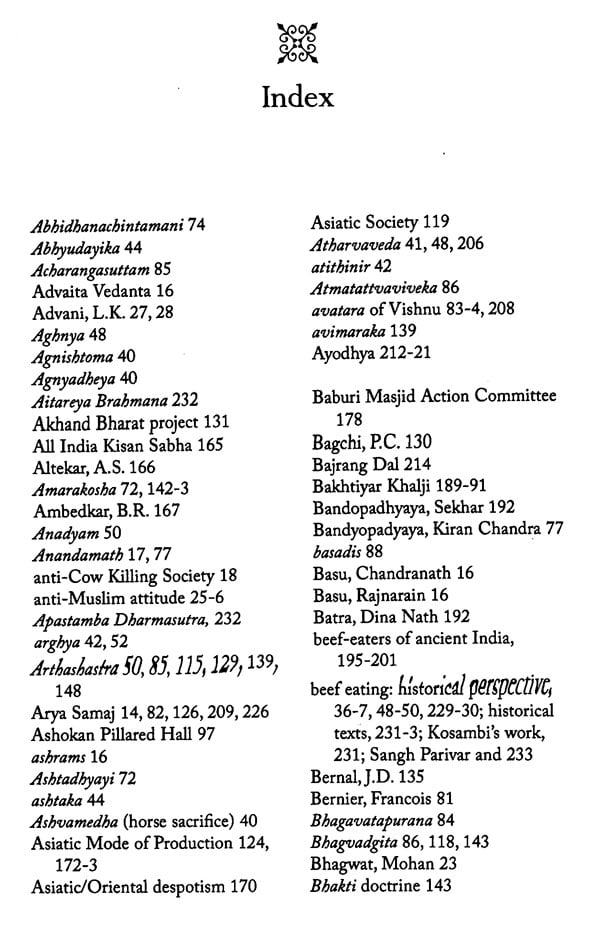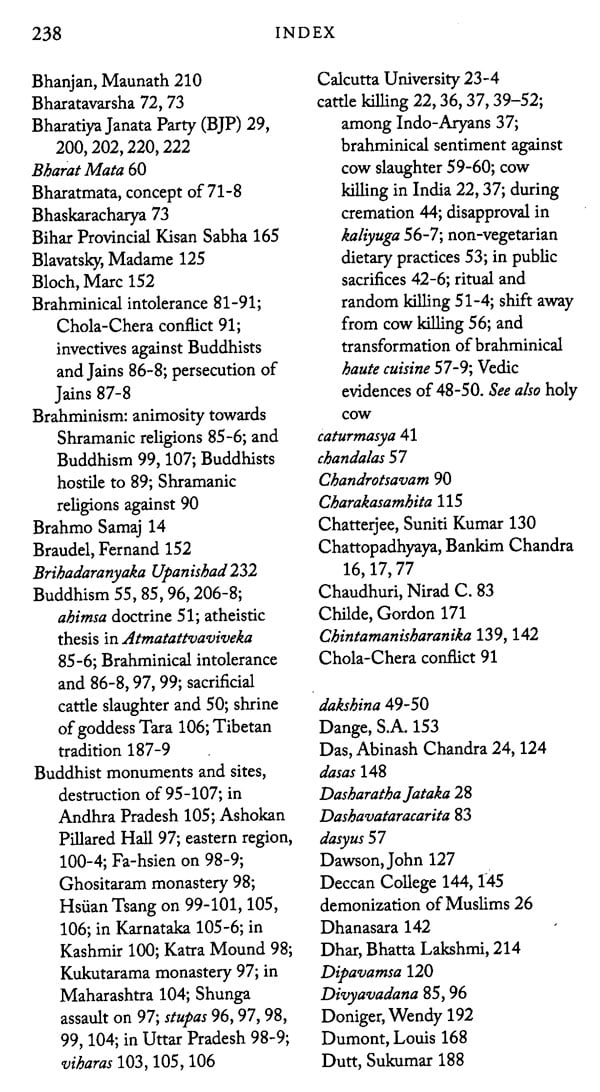
Against the Grain (Notes on Identity, Intolerance and History)
Book Specification
| Item Code: | NAZ724 |
| Author: | D.N. Jha |
| Publisher: | Manohar Publishers and Distributors |
| Language: | English |
| Edition: | 2005 |
| ISBN: | 9789388540124 |
| Pages: | 244 |
| Cover: | PAPERBACK |
| Other Details | 8.50 X 5.50 inch |
| Weight | 260 gm |
Book Description
The present collection consists of essays and short notes on some of the issues that dominate the political and cultural discourse of contemporary India which is witnessing the unprecedented ascendancy of the Hindu Right. The volume represents a spontaneous response to its several loony assertions about the history and culture of India: India is a Hindu rashtra and the Hindu identity goes back to geological time; the cow has always been sacred and unslayble; Hinduism is a tolerant religion; mythologies are the true histories of India; chanting of Bharat Mata ki Jai is an indisputable proof of one's patriotism; Indian historians are 'Macaulay's children' - stupid statements such as these, made with increasing frequency by the Hindutva votaries, figure prominently in public discourse as well as in private drawing room conversations.
This short yet timely volume seeks to debunk the myths of a fantastic antiquity of Hindu identity, spuriousness of the Brahminical tolerance and the pseudo nationalism of the saffron brigade whose historio-graphy is rooted in colonialism and has multiple western paternity. It is therefore addressed more to those lay men and women who may be vulnerable to the hocus-pocus of the Sangh Parivar and less to its members who are averse to reading, and rational thinking and love to wallow in their ignorance.
Dwijendra Narayan Jha was educated at the Presidency College, Calcutta, and Patna University where he taught history for more than a decade. He was Professor of History at the University of Delhi until his retirement in 2005. He has edited, and authored several works including The Myth of the Holy Cow (London, 2002) and Rethinking Hindu Identity (London, 2009) which have rattled India's Hindu Right wing establishment.
Professor Jha was elected Sectional President of Andhra Pradesh History Congress (1987) and General President, Punjab History Con-ference (1999). A UGC National Lecturer (1984-5) and Honorary Research Fellow, Indian Institute of Advanced Study (1991-2), he was Secretary, Indian History Congress (1986-9) which elected him its General President in 2005-6. A recipient of the prestigious H.K. Barpujari Award in 1995, he was honoured by the Asiatic Society, Calcutta, in 2011 for his significant contributions.
WHEN INDIA BECAME independent from British rule in 1947, the consequent jubilation was marred by the devastation of the country's partition into India and Pakistan leading to unprecedented miseries - riots, mass casualties, and a colossal wave of migration. But at the same time policy framers and nation builders, led by Jawaharlal Nehru and inspired by his 'tryst with destiny' speech, were able to establish a secular and socialist state. Its most urgent task was the national reconstruction which required not only a relentless activity at the legislative and administrative level but also an intense academic debate on the daunting issues facing it. Caste and untouchability, poverty of the people, the country's economy which the British had left in a shambles, the trauma of partition and the subsequent communal conflagrations were some of the problems that dominated the post Independence discourse in social sciences. In history this meant a reassessment of India's past which necessitated a rigorous scrutiny of sources and their use on scientific and secular lines. Thus in the post-independence period the textual sources have been used with much greater attention to their chronology, content and geography than was the case earlier; artifacts and antiquities which satisfied the antiquarian appetite of archaeologists have now become a major source for the study of material culture, patterns of rural / urban settlements, technology, etc. The inter-action between history and other disciplines like sociology and anthropology has enriched historical research methodologically as well as by raising new issues and expanding its scope. Thus history has become a scientific enterprise during the decades after Independence.
**Contents and Sample Pages**